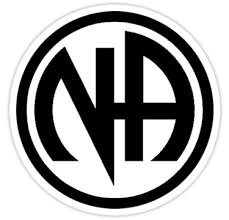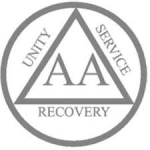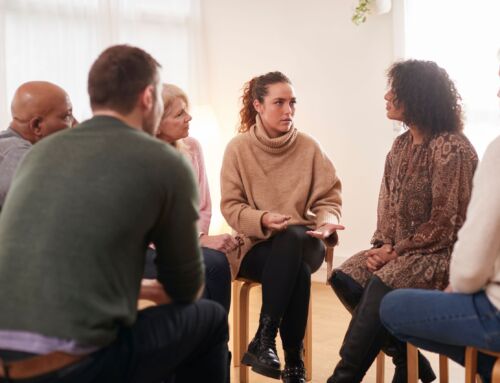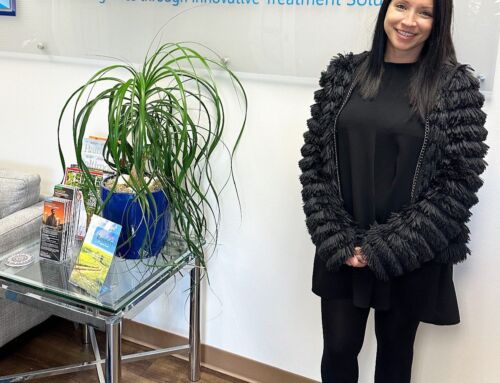 For many people looking to get clean and sober, one of the major suggestions often offered by an addiction treatment provider (a treatment center, therapist, doctor, etc.) will be for that person to also attend “outside 12 Step meetings”. Most of the time, this will be either AA (Alcoholics Anonymous) or NA (Narcotics Anonymous) meetings. This can sometimes cause a barrier for the person looking to overcome their addiction or their substance abuse issues, meaning the client in treatment. Many addiction treatment providers will run into resistance from the client. The person will offer a number of reasons or excuses why they shouldn’t have to or don’t want to attend meetings. Some of those will include:
For many people looking to get clean and sober, one of the major suggestions often offered by an addiction treatment provider (a treatment center, therapist, doctor, etc.) will be for that person to also attend “outside 12 Step meetings”. Most of the time, this will be either AA (Alcoholics Anonymous) or NA (Narcotics Anonymous) meetings. This can sometimes cause a barrier for the person looking to overcome their addiction or their substance abuse issues, meaning the client in treatment. Many addiction treatment providers will run into resistance from the client. The person will offer a number of reasons or excuses why they shouldn’t have to or don’t want to attend meetings. Some of those will include:
-
- “I don’t have time. Meetings don’t fit into my schedule”
- “I shouldn’t have to go to those- I’m not an addict/alcoholic”
- “Those things are cults”
- “I’ve gone to meetings before and they didn’t work”
- “The people there are weird and uninviting”
- “I don’t like crowds or big groups”
- “I don’t believe in a Higher Power and they make you believe in God”
- “Those things are religious and I’m not religious”
- “I don’t like to talk to strangers. They call on you there and make you share”
- “Why do I have to go there- I’m already coming here for treatment. I don’t need more therapy”
- “I don’t want people to know I have a problem”
- “I’m not as bad as those people”
What’s a Good Excuse for not Seeking Help with Recovery?
While these all may seem like valid excuses, they are not. Many of them are misconceptions or uninformed opinions about 12 Step fellowships and the meetings those within the fellowships attend. The truth is, most people simply are uncomfortable the first time they go to a 12 Step meeting. Most of the time they won’t know anyone and they are being directed to attend a meeting of people who have admitted they have an addiction to drugs or alcohol.
The stigma of addiction or alcoholism is often so strong it pervades the thinking of someone suffering from the same illness. The “I may have a problem but it’s not as bad as THOSE people” thinking. And walking into a meeting of a bunch of people that are unknown is typically uncomfortable in any situation, not to mention walking into a meeting of unknown people carrying the guilt and shame and personal stigma of addiction. No one walks into AA or NA riding the crest of the wave of life. No one ever walks into their first AA or NA meeting happy to be there. They may be tired, they may be relieved, they may have accepted it but certainly no one is carrying balloons and cake and announcing they have arrived at the meeting and to “LET THE HEALING BEGIN.”
 Now, every meeting SHOULD be welcoming to a new person. However, that isn’t always the case. AA and NA meetings are filled with people that are human, that sometimes act poorly or judge others. They may not be doing well in recovery themselves, they may have had a bad day, or they may just be an asshole. It happens. If you get a bad response or are treated poorly at your first meeting, don’t run to the hills screaming how unwelcoming AA or NA meetings are, just go to a different meeting.
Now, every meeting SHOULD be welcoming to a new person. However, that isn’t always the case. AA and NA meetings are filled with people that are human, that sometimes act poorly or judge others. They may not be doing well in recovery themselves, they may have had a bad day, or they may just be an asshole. It happens. If you get a bad response or are treated poorly at your first meeting, don’t run to the hills screaming how unwelcoming AA or NA meetings are, just go to a different meeting.
Here’s a tip: A meeting that treats new people poorly or that does not greet new people with nonjudgmental, open arms is probably a pretty bad meeting to begin with and one that should be avoided. A good meeting of AA or NA will be welcoming, people will introduce themselves, they will offer friendship and fellowship and attempt to explain to the new person what occurs at meetings so that meetings don’t seem so scary or uncomfortable.
Things to Remember for AA & NA Meetings
A few other points to remember for the client resistant at attending AA or NA meetings:
- • If an addiction treatment provider is suggesting it is a good idea for a client to attend meetings, they client probably should attend meetings. After all, the therapist or drug rehab probably knows a little bit more about what a client needs to stay clean and sober than the client does
- • A client always has time to attend meetings. Maybe not a meeting everyday. But the old adage holds true: “If you have time to get your drugs and get high, you have the time to go to a meeting”
- • Alcoholics Anonymous and Narcotics Anonymous are not cults. Now the truth is, some meetings can seem like it. The truth is, some meetings can be weird and oddly cultish. If you find that type of meeting, GO FIND ANOTHER MEETING. All 12 Step meetings are autonomous, meaning that each meeting is self-governed to a degree. Not all meetings are alike. Some are great, filled with happy people that are clean and sober and like to spread a message of hope. Some are depressing, where people come just to cry and complain and share all their problems. AVOID THOSE MEETINGS. Some are cult like, where what seems like angry, bitter people tell new people what they have to do and say. AVOID THOSE MEETINGS. Remember: There are no rules or laws in 12 Step meetings. Find the meetings that people are happy to be clean and sober and are just looking to be helpful to a new person.
- • If you’ve gone to meetings before and they “didn’t work”, guess what? If your therapist or treatment center is suggesting to go, it’s time to admit you may not know what’s best for you and try again. Although meetings don’t actually “work” or “don’t work”, let’s just say that maybe they didn’t work before but maybe they’ll work this time?
- • Here’s a weird little piece of information for a new person: You don’t have to believe in God or a Higher Power to go to meetings. If someone tells you that, they are uninformed. Meetings are not religious and they are not “Christian”. The majority of people that walk into their first AA or NA meeting are either atheist or agnostic. Many are not Christian. Again, anyone in a meeting that tells you that you HAVE to do something is way off and clearly doesn’t understand the purpose of recovery. Now, the trust is also this: Most people that get clean and sober through 12 Step fellowships undoubtedly come to believe in something greater than themselves in their journey of recovery. That could God. That could be Jesus. That could be Muhammad. Many people turn to Buddhism. A lot of people in these fellowships don’t necessarily believe in God, but believe in things like energy or nature or even science as something greater than themselves. It just seems to naturally occur during most people’s personal journey of recovery.
- • Fear of people or crowds? Yes, that is something that needs to be worked on during treatment, but in recovery people often end of having to do things that make them scared or uncomfortable. Let’s just chalk this up to one of those times.
- • Alcoholics Anonymous and Narcotics Anonymous are not treatment. They are not group therapy. They are not even “self-help” groups. 12 Step meetings help in supporting a person in treatment. They aid in creating a support system of people that are clean and sober. They are not meant to take the place of addiction treatment. They certainly aren’t group therapy, although all too often attendees of AA and NA meetings use them for group therapy. If you find yourself at a meeting that people are using for group therapy, that people are using to regularly cry and share their issues, or that people are using as a dumping ground for their problems then FIND ANOTHER MEETING. The purpose of meetings is to truly offer a place for new people needing to get clean and sober to go meet people that are currently clean and sober, so that those are have been clean and sober for some time can help show the new people how they stay clean and sober. That’s it. They do this by talking about ways to live through positive actions like the 12 Steps and share their stories of what they were like in their addiction, what happened to them that they got clean and sober and what they are like presently to keep staying clean and sober and happy, joyous and free from active addiction.
About Alcoholics Anonymous & Narcotics Anonymous Meetings
Alcoholics Anonymous (AA) and Narcotics Anonymous (NA) meetings can be scary for a new person just getting clean and sober. They can seem overwhelming. They can seem weird. But they also offer the best outside support for a person going through treatment or just getting out of a drug rehab to learn to stay clean and sober long term. They offer a supporting environment and a blueprint for a sustainable recovery. Many new people will not like their first experience at a meeting. Don’t be worried: Almost all new people don’t have a great experience at their first meeting. Don’t give up. Keep going. Look for meetings where people are smiling and are happy. A good meeting will have an energy that is undeniably attractive. A good meeting will great a new person and welcome them and introduce them to the group. A good meeting will talk about being happy while clean and sober, will talk about the 12 Steps and sponsorship. A good meeting will not talk about how much they hate drugs and alcohol, but rather how drugs and alcohol simply don’t work for them anyone. And they will talk about what they do now to stay clean and sober and if the new person is interested in staying clean and sober, they would certainly show them how to do so.
Need Help? Contact a Recovery Professional Today
If you or someone you know is suffering from a drug and alcohol addiction please call us for help. Maryland Addiction Recovery Center offers the most comprehensive addiction treatment in the area. Please call us at (410) 773-0500 or email info@marylandaddictionrecovery.com. For more information on all of our alcohol and addiction treatment services and resources, please visit the web site at www.marylandaddictionrecovery.com.






